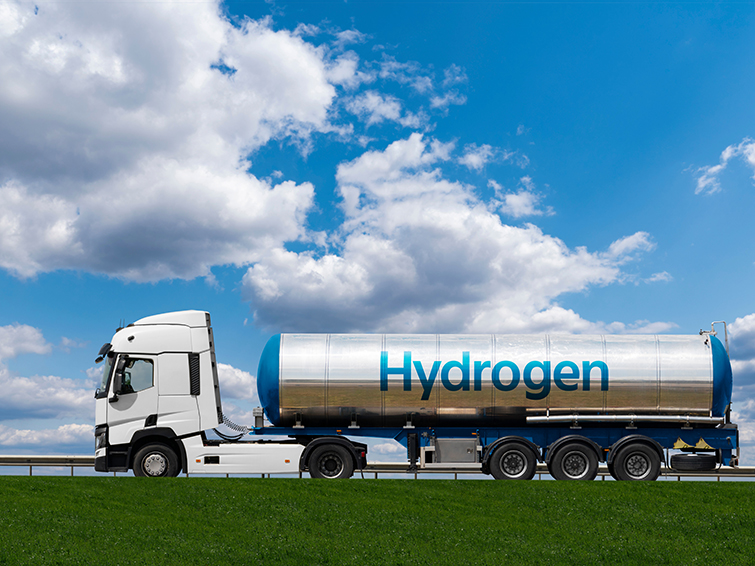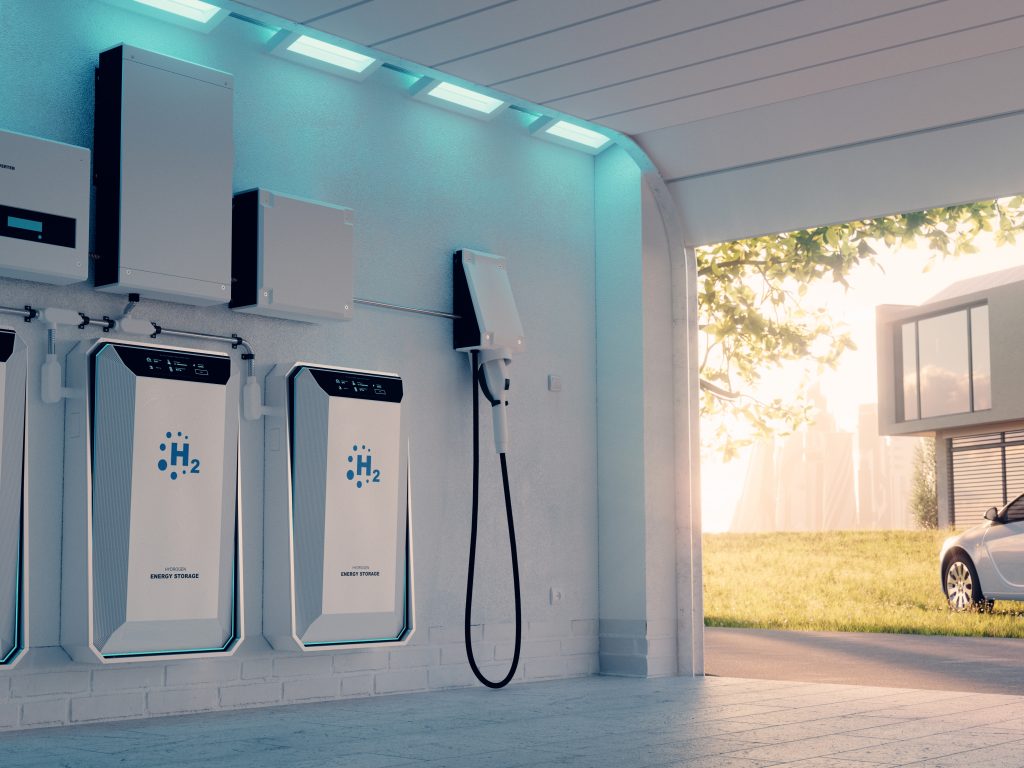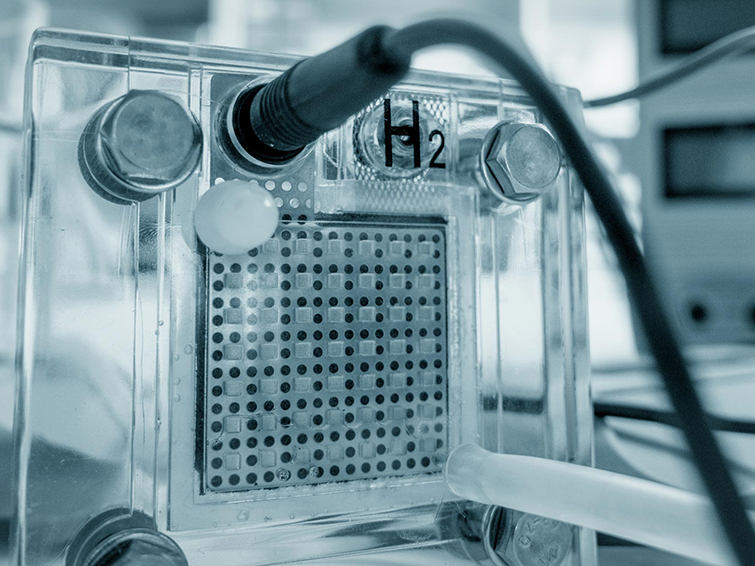Research
The Centre for Hydrogen Innovations (CHI) aims to address the technological constraints in scaling the technologies that can turn hydrogen into a global commodity and position Singapore as the game changer in enabling hydrogen economy. The Centre will leverage the National University of Singapore (NUS)’ expertise in education, research, and entrepreneurship to provide thought leadership, cutting-edge science and technologies and foster collaborations to catalyse breakthroughs and innovations in the global hydrogen economy.
Low-Carbon Hydrogen Production
CHI aims to develop solutions that enables high efficiency production of hydrogen from renewable energy sources, in order to meet the desired outcome of reducing the reliance on fossil fuels and support the nation towards net-zero carbon emission. Some of the initial areas of focus includes pursuing an electrochemical approach for efficient one-step production of high density hydrogen and the development of hybrid electrolysers using photo/thermo/electro catalysis for hydrogen production.
Hydrogen Storage
One of the key pathways and enablers for hydrogen economy to be established in Singapore is in the area of hydrogen storage. CHI aims to develop technologies for the efficient, safe and scalable storage and release of hydrogen through dynamic catalysis for high efficiency hydrogenation and dehydrogenation and will pursue further research in advanced materials that can become commercially viable alternative options for hydrogen storage.


Hydrogen Carrier Systems and Utilisation
As a city state that is constrained by the lack of natural resources and land area, Singapore would need to rely on commercially viable, safe and efficient means for the transportation of hydrogen. Liquid organic hydrogen carriers (LOHCs) and ammonia are promising candidates due to their ability to perform facile loading and unloading of hydrogen in a sustainable cyclical process. LOHCs are typically liquids or solids of low melting point that can be chemically hydrogenated and dehydrogenated under appropriate reaction conditions. CHI aims to identify and synthesise organic molecules that can be hydrogenated / dehydrogenated. Another carrier is the ammonia. CHI aims to develop end-to-end systems for ammonia combustion for energy generation. We aim to achieve high energy efficiency and cost-effective processes.
CHI will be developing highly efficient systems that are able to serve dual purposes, as fuel cells for on-demand generation of electricity from hydrogen as well as electrolysers to generate hydrogen for storage and subsequent power conversion. These systems have the potential to help improve the reliability of the grid and overcome the intermittent nature of renewable energy sources. CHI will leverage advanced material research on catalysts that can provide improved power conversion efficiencies, achieve high durability and enable cost-effective electricity generation.
Hydrogen-Derived Sustainable Fuels
CHI will be developing hydrogen-derived sustainable fuels, which offers a pathway to decarbonise the mobility industry by utilising hydrogen in the production of synthetic fuels or as a direct fuel source. This approach involves either producing SAF through Fischer-Tropsch synthesis or other methods that combine hydrogen with captured carbon, or using hydrogen directly in fuel cells or as a fuel for combustion engines.

- Home
- Research
Centre for Hydrogen Innovations
- Mailing address:
National University of Singapore (NUS)
Centre for Hydrogen Innovations (CHI)
University Hall, Lee Kong Chian Wing
21 Lower Kent Ridge Road, #05-02
Singapore 119077
Lab address:
National University of Singapore (NUS)
Centre for Hydrogen Innovations (CHI)
Blk E8, 1 Engineering Drive 3, #01-05
Singapore 117580 - +65 6601 8829
- hydrogen_innovations@nus.edu.sg


